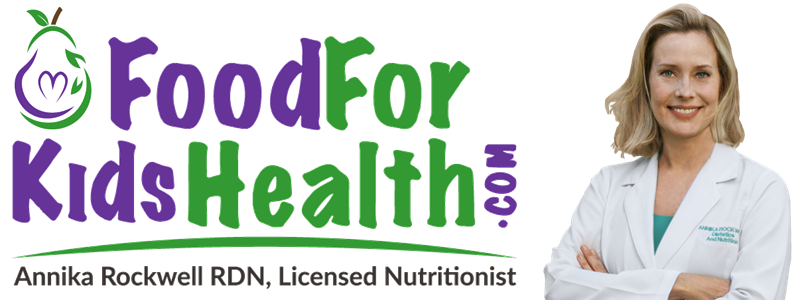 Does your infant experience frequent constipation or have trouble passing stools? A healthy baby should have 2-4 stools daily. If your child is not having regular bowel activity, the immune system becomes weakened and it leaves the body vulnerable to developing illness and disease. This is particularly concerning for the growing and developing body of a child.
Does your infant experience frequent constipation or have trouble passing stools? A healthy baby should have 2-4 stools daily. If your child is not having regular bowel activity, the immune system becomes weakened and it leaves the body vulnerable to developing illness and disease. This is particularly concerning for the growing and developing body of a child.
Constipation and other bowel disorders are common symptoms of underlying illness, which can be treated with dietary and lifestyle changes. When your child becomes constipated, it’s a signal that the digestive tract is lacking in friendly bacteria, which normally populate the bowel and are obtained from foods your child eats. A good diet provides a solid foundation for health to keep the digestive tract strong and capable of good elimination to prevent disease.
What causes constipation?
When a child is born, the infant receives its flora or bacteria from the mother while passing through the birth canal. If the mother has a history of poor dietary habits, antibiotic or contraceptive use, her flora will be unhealthy. If she does not breast-feed her baby, the gut flora of the child will be further compromised. Digestive problems in the infant will develop including colic, gas, constipation, diarrhea, bloating, and difficulty in feeding.
As a result, intestinal damage and malnourishment occurs early on in life, and is often also accompanied by various allergies. The child may also have frequent illnesses such as ear infections. These problems are treated by doctors with multiple doses of antibiotics, which cause the healthy bacteria in the body to diminish and make matter worse.
Poor bacterial flora and digestion are at the center of serious health issues that can become chronic. When children are born with intestinal bacterial imbalances or gut dysbiosis, they tend to have a weakened immune system and are more susceptible to illness.
Children who consume diets rich in carbohydrates such as grains and processed foods, which are difficult to digest, will likely continue to experience more issues with gut dysbiosis. According to Dr. Natasha Campbell-McBride, people with abnormal or damaged intestinal flora will want to eat those foods which actually support the continual survival of unhealthy bacteria, and will refuse or exclude healthy foods.
Here are 5 safe, natural ways to alleviate constipation caused by abnormal gut flora in the digestive tract:
- Support the digestive system with friendly bacteria. Probiotics and healthy bacteria are essential for health. Try HMF Natogen no FOS Infant Probiotic by Genestra. This formula is specially formulated for the newborn infant 0-12 months who has gastrointestinal upsets including acid reflux, vomiting/excessive spit-up, gas, indigestion, constipation, diarrhea, or sensitivities to certain foods including dairy. Soluble in milk or water, or easily sticks to finger for baby to suckle on.
- If you are breastfeeding, make sure you are eating plenty of healthy fats and other foods. One of the best ways to protect your child’s health and support gut flora is to breastfeed. If you child experiences digestive distress such as constipation or diarrhea, the cause may be coming from something in your diet. Eat grass-fed meats from cattle, lamb, poultry, and game, fish eggs, eggs from hens on pasture, safe-sourced seafood, cultured vegetables and vegetable juices made at home, organic fruits and vegetables, healthy fats like butter, cod liver oil, olive and coconut oils, and fats from animals and birds on pasture such as lard and tallow. Avoid all processed foods, grains, and gluten if your child is constipated or experiencing other digestive issues. If you are unable to breastfeed, click here to learn about healthy, home-made baby formula (see post I created here, not yet published), or hypo-allergenic, home-made formula.
- Give your child enemas. A child with persistent constipation should be given an enema nightly before bed. According to Dr. Natasha Campbell McBride, enemas provide:
- Prompt and effective relief of chronic constipation.
- Removal of fecal compaction within the bowel, and reduces toxins produced by accumulating putrefaction. Allows the introduction of friendly bacteria.
- Using probiotics in the enema ensures delivery of friendly bacteria to the colon that might otherwise be destroyed by stomach acid in foods consumed.
- The motion of gentle filling and emptying of the colon increases peristaltic (muscular contraction) activity by which the colon naturally moves material out of the digestive tract.
- Improvement in the quality and frequency of bowel movements
Your child should lie on his or her right side during the enema. This position allows gravity to assist in the flow of the Probiotic past the descending colon, just around the “corner” of the splenic flexure, and into the transverse colon for higher penetration and better release of toxic feces. Be sure to provide 3-4 probiotic capsules to the enema. This allows re-population in the the large intestine of friendly bacteria.
FLEET makes children’s suppositories which can be used successfully if you are in a bind and not able to do a child’s enema. The suppository lubricates the bowels near the rectum for easier bowel movement. This is especially helpful if you child is scared to have a BM and is in fear of the pain.
- Give your child a warm bath with Himalayan salts or epsom salts. You can purchase these salts at your local health food store. You can also use seaweed powder, apple cider vinegar, baking soda, or unrefined sea salt. Add 1/2 cup in the water your child bathes in. After bathing, gently massage some organic, extra virgin olive, hemp, castor oil into your child’s abdominal area. Use a gentle, circular, clock-wise circle motion approximately 2-4 inches from her belly button with your fingers. This motion follows the natural movement of the large intestine and encourages peristalsis (the squeezing action of the intestines) to promote elimination.
- If your child is eating solids, serve these fruits, vegetables, and other foods which help produce bulk and encourage easier elimination: cooked, strained or mashed papaya, cabbage, peas, coconut, sweet potato, asparagus, fig, and rice bran. Try adding a variety of these foods above each day, but avoid excess fruit due to the sugars which can reduce beneficial bacteria in the digestion. When serving fruits, try making a smoothie using goat’s milk and/or kefir, and other healthy ingredients such as coconut oil which will provide healthy fats and beneficial bacteria to support the digestive system.
Preventing constipation in infants
Diet and lifestyle of the parent before and during pregnancy has tremendous impact on health after birth. Thus, issues with the health of the infant’s gut start when in-utero. Gut flora is vital to health and protects us from pathogenic bacteria, aids in digestion, assimilation and absorption, modulates the immune system and aids in detoxification. It becomes compromised by various factors such as antibiotic and other drugs, toxins in our food and environment, chlorine in the water supply, pollution, illness, radiation exposure, stress, and age.
When unhealthy flora are passed from mother to fetus, typical infant health issues occur, which can be made worse by frequent infections and use of antibiotics, vaccines, and poor diet. As the child develops, lack of beneficial flora from living, healthy foods results in a damaged digestive tract and more permeable gut wall. This leads to food allergies and intolerances, toxicity, mal-absorption of nutrients, a compromised immune system, and eventually auto immune disorders.
Dr. McBride has discovered the negative effects toxic by-products have on other organ systems in the body such as lung and liver, which causes allergic reactions, asthma, and also chronic and long-term damage to the lungs. The body has numerous pathways through which it eliminates toxins: skin, urinary tract, lung, kidney, and mucus membranes.
When these systems don’t function correctly, the result is eczema, asthma, chronic cystitis and sinusitis, frequent infections, colds, constipation and diarrhea, constipation, and the likelihood of irritable bowel developing is high. Penetration of toxins and proteins through the gut wall causes toxicity. It enters the blood stream and eventually makes its way to the blood-brain barrier. What follows are various symptoms – learning disorders, hyperactivity, depression, substance abuse, and an array of of psychological issues.
For more information:
Dr. Natasha Campbell McBride’s book Gut and Psychology Syndrome focuses on a diet that helps with constipation and all digestive problems.


